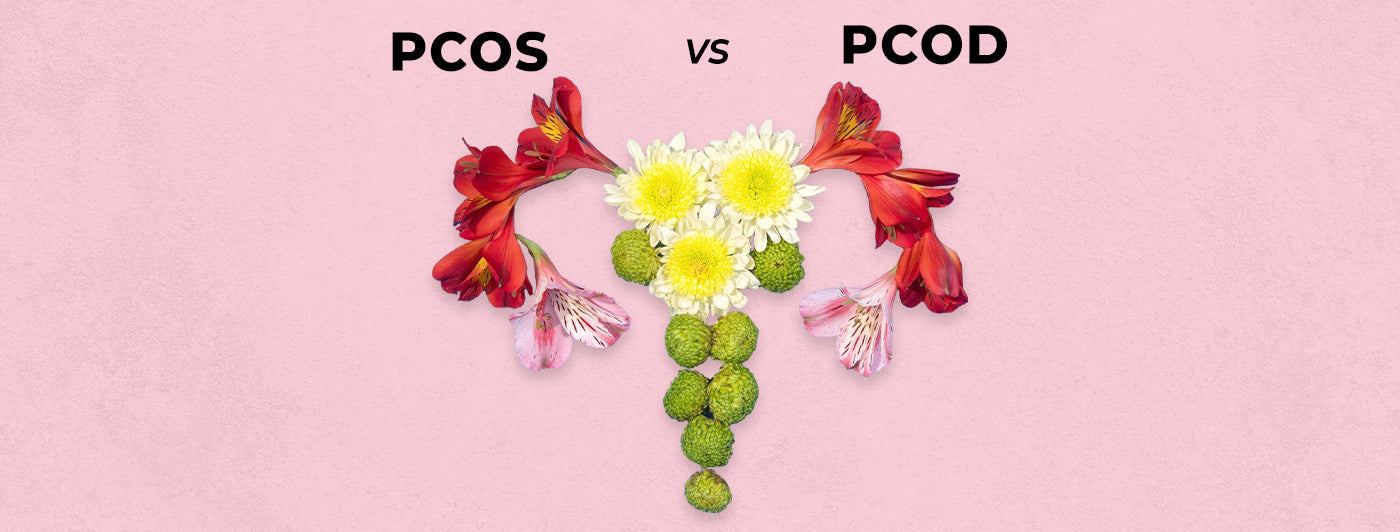Understanding the Differences Between PCOS and PCOD
Women’s health is often impacted by hormonal conditions, two common examples being Polycystic Ovary Syndrome (PCOS) and Polycystic Ovarian Disease (PCOD). While these terms are sometimes used interchangeably, there are important distinctions. Recognizing the difference between PCOS and PCOD can help women understand how each condition might affect their health.
What is PCOS?
PCOS, or Polycystic Ovary Syndrome, is a hormonal disorder affecting women of reproductive age. In PCOS, the ovaries produce higher-than-normal amounts of androgens, which are male hormones. This hormone imbalance can lead to various health issues, including irregular menstrual cycles, infertility, acne, and excessive hair growth. Studies also show that PCOS is linked to metabolic issues, including insulin resistance, which can increase the risk of diabetes over time. Knowing the difference between PCOS and PCOD is crucial for understanding the varied health impacts.
What is PCOD?
PCOD, or Polycystic Ovarian Disease, also involves multiple cysts in the ovaries, but it is considered a milder version of PCOS. In PCOD, women may experience irregular menstrual cycles, but symptoms are generally less severe than those seen in PCOS. Recognizing the difference between PCOS and PCOD helps because PCOD is often manageable with lifestyle modifications alone, posing fewer long-term health risks than PCOS.
Key Differences Between PCOS and PCOD
The primary distinctions between PCOS and PCOD can be categorized by their severity, symptoms, and long-term impact on health.

1.Severity of Hormonal Imbalance:
- PCOS generally causes more pronounced hormonal imbalances, disrupting ovulation and fertility.
- PCOD presents milder hormonal disruptions, with women more likely to ovulate regularly than those with PCOS.
2.Impact on Fertility:
- Women with PCOS often face infertility due to irregular ovulation and may require medical help to conceive.
- In contrast, PCOD usually allows for a more regular ovulation pattern, and fertility is less affected.
3.Long-term Health Risks:
- PCOS increases the risk of several metabolic issues, including type 2 diabetes, heart disease, and obesity.
- PCOD is less likely to contribute to severe health complications, though it still requires management.
Impact of Diet and Lifestyle
Managing these conditions often requires a focus on diet and lifestyle changes, especially with PCOS. A well-balanced diet rich in fiber, lean proteins, and healthy fats can help regulate insulin levels and reduce inflammation, both crucial for symptom management.For women exploring protein sources, vegan protein powder offers a plant-based option that may be beneficial for those with sensitivities and can support steady blood sugar levels often important in PCOS management.
Symptoms and Diagnosis
Women experiencing symptoms like irregular periods, weight gain, or excessive facial hair should consult a healthcare provider. While both PCOS and PCOD can share symptoms, accurate diagnosis is essential for effective management. Common steps in diagnosing these conditions include:
- Blood Tests: Hormone levels are assessed to check for imbalances in androgens (male hormones), insulin, and other hormones, which can indicate either PCOS or PCOD. Elevated levels of androgens are more commonly associated with PCOS.
- Ultrasound Imaging: An ultrasound is often conducted to examine the ovaries for cysts and assess ovarian size. Multiple cysts and enlarged ovaries are commonly seen in both conditions, but the extent and severity can vary.
- Symptom Tracking and Medical History: Providers may ask about menstrual cycle irregularities, weight gain patterns, skin issues (like acne), and hair growth. These observations help identify potential underlying hormonal imbalances associated with either PCOS or PCOD.
- Glucose Tolerance and Insulin Resistance Tests: Since insulin resistance is frequently associated with PCOS, healthcare providers may perform a glucose tolerance test or fasting insulin test to assess blood sugar and insulin levels.
These diagnostic steps guide healthcare providers in distinguishing between PCOS and PCOD and tailoring treatment options accordingly.
Treatment Options
Treatment strategies vary significantly for these two conditions. PCOS often requires a more intensive approach due to the risk of long-term complications, while PCOD can often be managed effectively with diet and exercise alone.
1.PCOS Treatment:
- Medications: Birth control pills may be prescribed to regulate menstrual cycles, and anti-androgen medications can help manage excessive hair growth and acne.
- Diet and Exercise: A focus on a low glycemic index (GI) diet and regular physical activity improves insulin sensitivity and manages weight.
- Supplements: Inositol and omega-3 fatty acids are sometimes recommended to support hormonal balance. For some women, a PCOS supplement with essential nutrients may also be suggested to address specific metabolic or hormonal needs.
2.PCOD Treatment:
- Lifestyle Adjustments: Regular exercise, a balanced diet, and stress management techniques are generally sufficient for PCOD.
- Medical Support: In cases where symptoms are persistent, low-dose contraceptives may help regulate menstrual cycles.
Impact on Women’s Long-Term Health
Over time, PCOS can significantly impact a woman’s overall health, with increased risks for type 2 diabetes, cardiovascular disease, and even endometrial cancer. This underscores the importance of early diagnosis and management. Differentiating the difference between PCOS and PCOD is crucial for tailored care and reducing long-term risks.
In contrast, PCOD, while still requiring management, generally poses fewer severe health risks. For women with PCOD, maintaining a healthy lifestyle can often mitigate symptoms and promote regular menstrual cycles.
Conclusion
Understanding the difference between PCOS and PCOD can empower women to take control of their health with the right diagnostic and treatment approach. While both conditions involve ovarian cysts and hormone imbalances, the severity and long-term health risks vary. By focusing on a balanced lifestyle, women can manage symptoms more effectively and improve their overall health. Consulting with a healthcare provider is essential for anyone experiencing symptoms, as it is the first step in managing either condition effectively.











